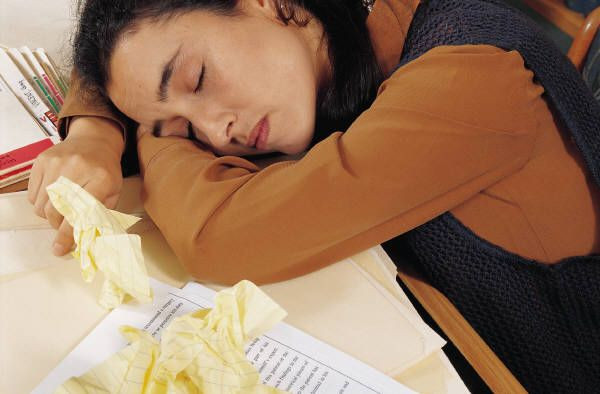Taking Midday Naps Ages Your Brain by 2 Years, May Significantly Increase Dementia Risk

Taking too many midday naps in old age can accelerate the development of dementia and cognitive impairments, according to new research.
Scientists, presenting Monday at the Alzheimer’s Association International Conference in Vancouver, found that getting too much, as well as not getting enough sleep, increases mental age by two years, suggesting that sleep can play an essential role in mental decline.
They found that the "goldilocks zone" is seven hours, which they say is neither too much nor too little.
The latest findings add to the mounting evidence that shows that poor sleep quality and quantity in the elderly can negatively affect health and increase the risk of a variety of illness like heart disease and diabetes.
"We know that sleep patterns change as people age and that poor sleep affects overall health," said Dr. William Thies of the Alzheimer's Association and who organized the annual meeting, said in a statement.
"What we don't know for certain is whether poor sleep has long-term consequences on cognitive function," he added.
Thies said that while the recent findings suggest that people with sleep problems will experience more severe long-term cognitive declines, the good news is that tools that monitor sleep duration and quality already exist and can intervene by helping sleep patterns return to normal.
Researcher Elizabeth Devore of Brigham and Women's Hospital, Boston, and her colleagues examined data of more than 15,000 participants who were 70 and older in the Nurses' Health Study. Subject's daily sleep duration were monitored and categorized into four groups: 5, 6, 7, 8 or greater than or equal to 9 hours.
Devore found that participants who slept five or less hours and those who slept nine or more hours a day had lower average cognition than those who slept seven hours per day, and that too little or too much such sleep was equivalent to an accelerated cognitive aging pace by two years.
"Our findings support the notion that extreme sleep durations and changes in sleep duration over time may contribute to cognitive decline and early Alzheimer's changes in older adults," Devore said in a statement.
"The public health implications of these findings could be substantial, as they might lead to the eventual identification of sleep- and circadian- based strategies for reducing risk of cognitive impairment and Alzheimer's," she added.
Sleep's role in cognitive impairment was also shown in two additional studies presented at the conference.
In another study presented at the conference today, which followed nearly 4,900 people over eight years, found that the risk of cognitive decline increased when patients had excessive daytime sleepiness.
The study led by Claudine Berr of France’s National Institute of Health and Medical Research (INSERM) also found that difficulty sleeping at night was associated with cognitive decline.
“These results suggest that excessive daytime sleepiness may be an early predictor of cognitive decline,” researchers said in a statement.
A separate study of 1,300 women over age 75 found that people with sleep apnea or sleep-disordered breathing were twice as likely to develop mild cognitive impairment, a condition that usually precedes the mind-robbing disease.
Study author Kristine Yaffe of the University of California, San Francisco, said that the findings suggest that doctors should send patients with sleep disturbances for neurological evaluations.
"Overall, our findings support a relationship between sleep disturbances and cognitive decline in late age. They suggest that health practitioners should consider assessing older people with sleep disorders for changes in cognition," Yaffe said in a statement. "In addition, with additional long-term research, treatment of sleep disorders may be a promising method of delaying the development of MCI and dementia."
Yaffe found that those who women who developed disruptions in their circadian rhythms over the course of the 5-year study were significantly more likely to develop mild cognitive impairment.
"We believe that these results indicate that the relationship between sleep disordered breathing and dementia may be connected to the decrease in oxygen associated with sleep apnea and not to disrupted patterns of sleep," she said.



























